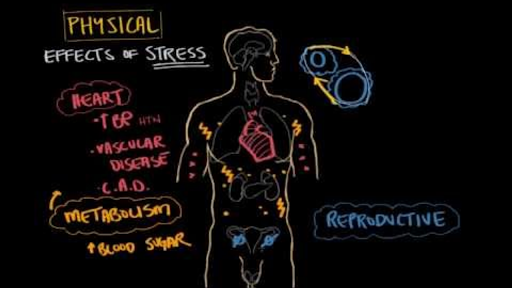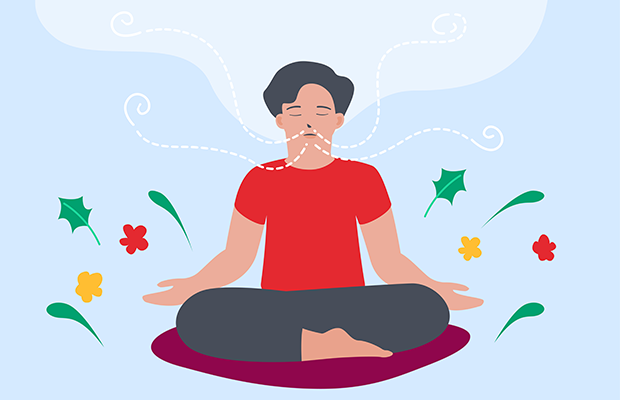
Introduction
Stress has become an inevitable part of our fast-paced lives, impacting our mental and physical well-being. While some level of stress can be motivating, chronic stress can lead to serious health issues. Therefore, it is crucial to learn how to manage stress effectively to maintain a healthy lifestyle. In this article, we will delve into the causes of stress, its effects on health, common stress management techniques, creating a stress-free environment, and seeking professional help.
Causes of Stress
Work-related stress
Work-related stress is one of the most common triggers. High demands, tight deadlines, conflicts with colleagues, and fear of job loss can all contribute to increased stress levels. Finding a healthy work-life balance and setting boundaries are essential in managing work-related stress.
Personal relationships
Interpersonal relationships can often be a source of stress. Conflicts with family members, friends, or romantic partners can cause emotional strain and impact one's mental health. Effective communication, setting boundaries, and seeking support from loved ones can help alleviate relationship-related stress.
Financial pressure
Financial worries can also lead to significant stress. Debt, unemployment, or financial instability can create a constant sense of anxiety. Creating a budget, seeking financial advice, and finding ways to increase income can help reduce financial stress.
Health concerns
Health issues, whether temporary or chronic, can contribute to stress. Dealing with illness, injury, or chronic conditions can be emotionally taxing. Proper medical care, lifestyle changes, and seeking emotional support are crucial in managing stress related to health concerns.
Effects of Stress on Health
Stress can have a profound impact on both physical and mental health. Constant stress can weaken the immune system, increase the risk of heart disease, obesity, and other chronic conditions. Moreover, stress can lead to mental health issues such as anxiety, depression, and insomnia.
Physical effects
Chronic stress can manifest physically in the form of headaches, muscle tension, digestive issues, and weakened immune system. These physical symptoms can worsen over time if stress is not effectively managed.

Mental effects
The impact of stress on mental health can be significant. It can lead to feelings of anxiety, irritability, and difficulty concentrating. Prolonged stress can also contribute to the development of mood disorders such as depression.
Emotion and behavior changes
Stress can impact emotions and behaviors, leading to mood swings, aggression, or emotional outbursts. Coping mechanisms such as substance abuse, overeating, or isolation can become prevalent in individuals struggling to manage their stress levels.
Common Stress Management Techniques
Exercise
Physical activity has been shown to reduce stress levels by releasing endorphins, which are neurotransmitters that promote a sense of well-being. Engaging in regular exercise, such as aerobic activities, yoga, or strength training, can help alleviate stress.

Mindfulness and meditation
Mindfulness practices, such as meditation, deep breathing, and guided imagery, can help calm the mind and reduce stress. These techniques focus on being present in the moment and fostering relaxation.
Deep breathing exercises
Deep breathing exercises, such as diaphragmatic breathing or box breathing, can help activate the body's relaxation response and lower stress levels. By focusing on slow, deliberate breathing, individuals can manage their stress more effectively.

Journaling
Writing down thoughts, emotions, and experiences in a journal can be a therapeutic way to process stress and gain perspective. Journaling can help individuals identify stress triggers, track patterns, and explore ways to cope with stress.
Time management
Effective time management can reduce stress by helping individuals prioritize tasks, set realistic goals, and allocate time for relaxation and self-care. Creating a daily schedule, setting boundaries, and avoiding procrastination are essential in managing time-related stress.
Social support
Seeking support from friends, family, or support groups can provide a sense of community and understanding. Talking to someone about stressors, sharing experiences, and receiving encouragement can help individuals feel less alone in their struggles with stress.
Creating a Stress-Free Environment
Decluttering and organizing spaces
A cluttered and disorganized environment can contribute to feelings of overwhelm and stress. Decluttering living and working spaces, organizing belongings, and creating a clean environment can promote a sense of calm and order.

Setting boundaries
Establishing healthy boundaries with work, relationships, and social commitments is crucial in preventing burnout and managing stress. Learning to say no, prioritizing self-care, and respecting personal limits can help create a balanced lifestyle.
Prioritizing self-care activities
Engaging in self-care activities, such as hobbies, relaxation techniques, or pampering routines, can boost mental well-being and reduce stress. Taking time for oneself, practicing self-compassion, and nurturing personal interests are essential in prioritizing self-care.

Disconnecting from technology
Constant connectivity to devices and screens can exacerbate stress levels. Setting boundaries with technology, such as limiting screen time, turning off notifications, and taking digital detox breaks, can help create a more peaceful environment.
Seeking Professional Help
Therapy and counseling options
Therapy and counseling sessions can provide individuals with valuable tools and strategies to cope with stress. Cognitive-behavioral therapy, mindfulness-based therapy, and group therapy are effective techniques in addressing stress-related issues.
Medication for stress management
In some cases, medication may be prescribed to individuals experiencing severe stress or mental health conditions. Antidepressants, anti-anxiety medications, or mood stabilizers may be recommended by healthcare professionals to alleviate symptoms of stress.
Support groups
Joining support groups or community organizations dedicated to mental health can offer a sense of community, validation, and shared experiences. Connecting with others who are facing similar challenges can provide emotional support and encouragement.
Conclusion
In conclusion, managing stress is crucial for maintaining a healthy lifestyle and overall well-being. By understanding the causes of stress, its effects on health, and implementing effective stress management techniques, individuals can reduce stress levels and improve their quality of life. It is important to prioritize self-care, seek professional help when needed, and experiment with various stress management strategies to find what works best for each individual. Remember, it is okay to ask for help and take steps towards a stress-free life.
FAQs
Q: What are some common causes of stress?
A: Common causes of stress include work-related pressure, personal relationship conflicts, financial worries, and health concerns.
Q: How does stress affect physical health?
A: Stress can manifest physically with symptoms like headaches, muscle tension, digestive problems, and a weakened immune system.
Q: What are some effective stress management techniques?
A: Effective stress management techniques include exercise, mindfulness and meditation, deep breathing exercises, journaling, time management, and seeking social support.
Q: How can I create a stress-free environment?
A: Creating a stress-free environment involves decluttering spaces, setting boundaries, prioritizing self-care activities, and disconnecting from technology.
Q: When should I seek professional help for stress management?
A: Seeking professional help for stress management is recommended if stress levels become overwhelming, affecting daily life, or if symptoms of anxiety or depression persist.


0 Comments